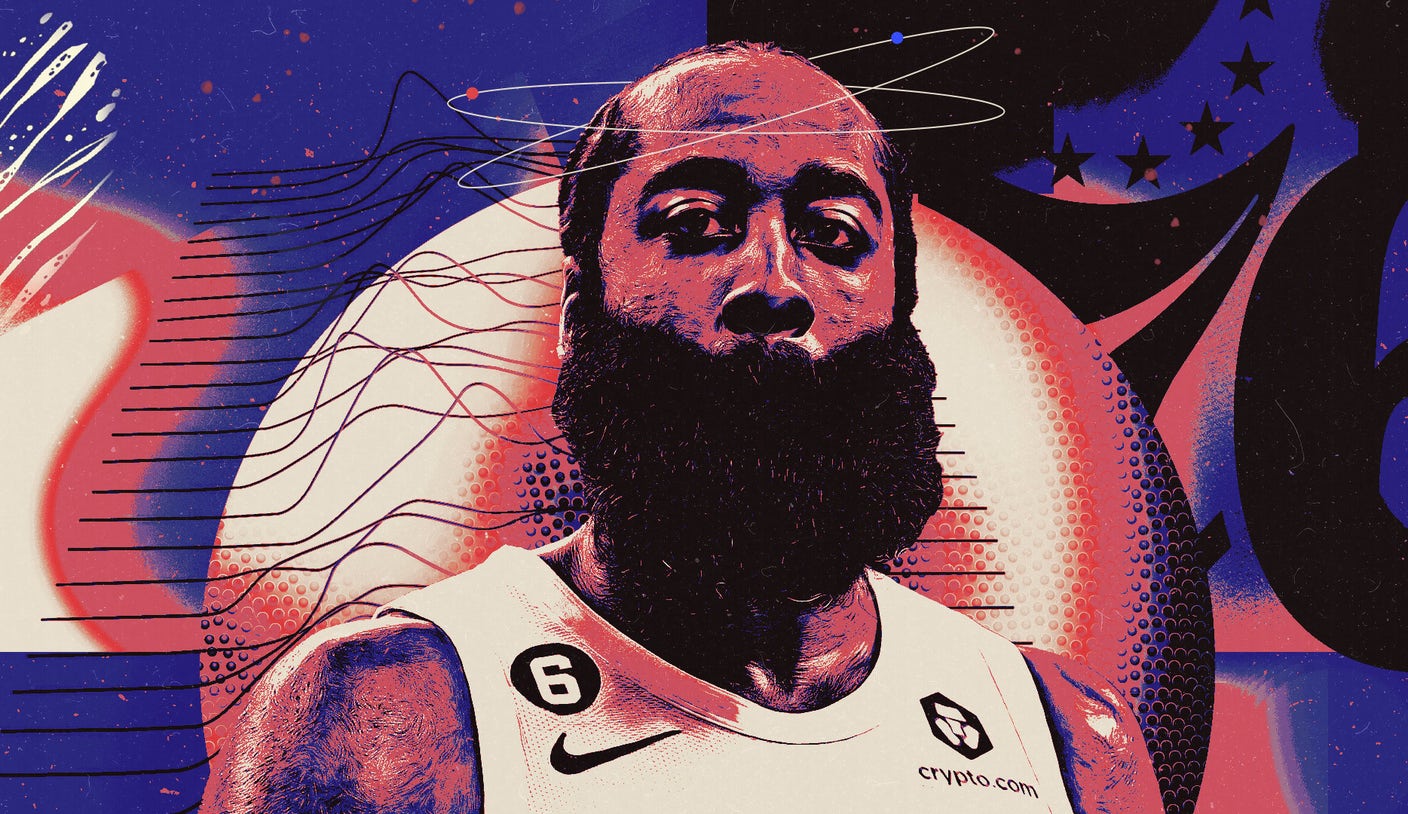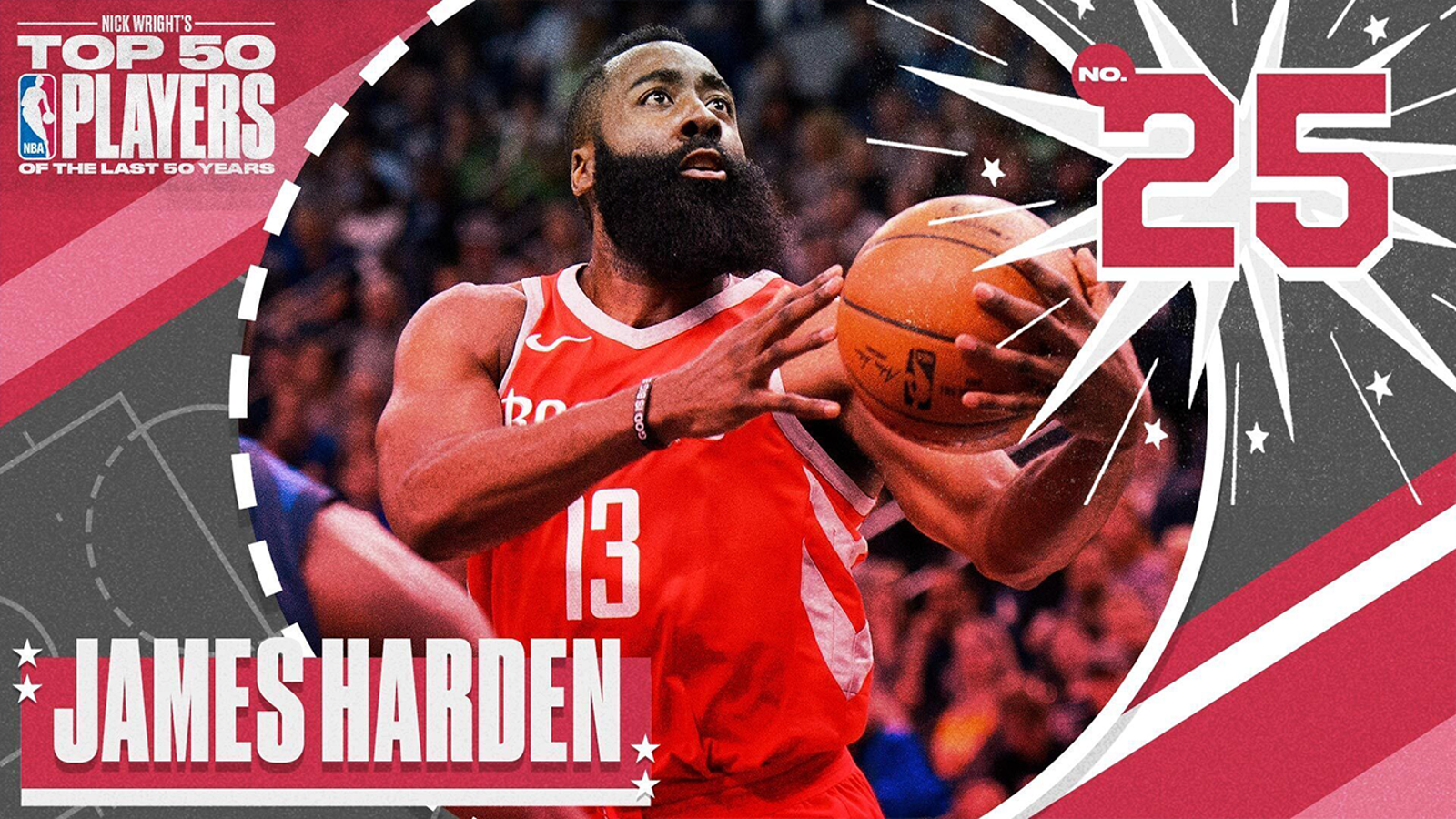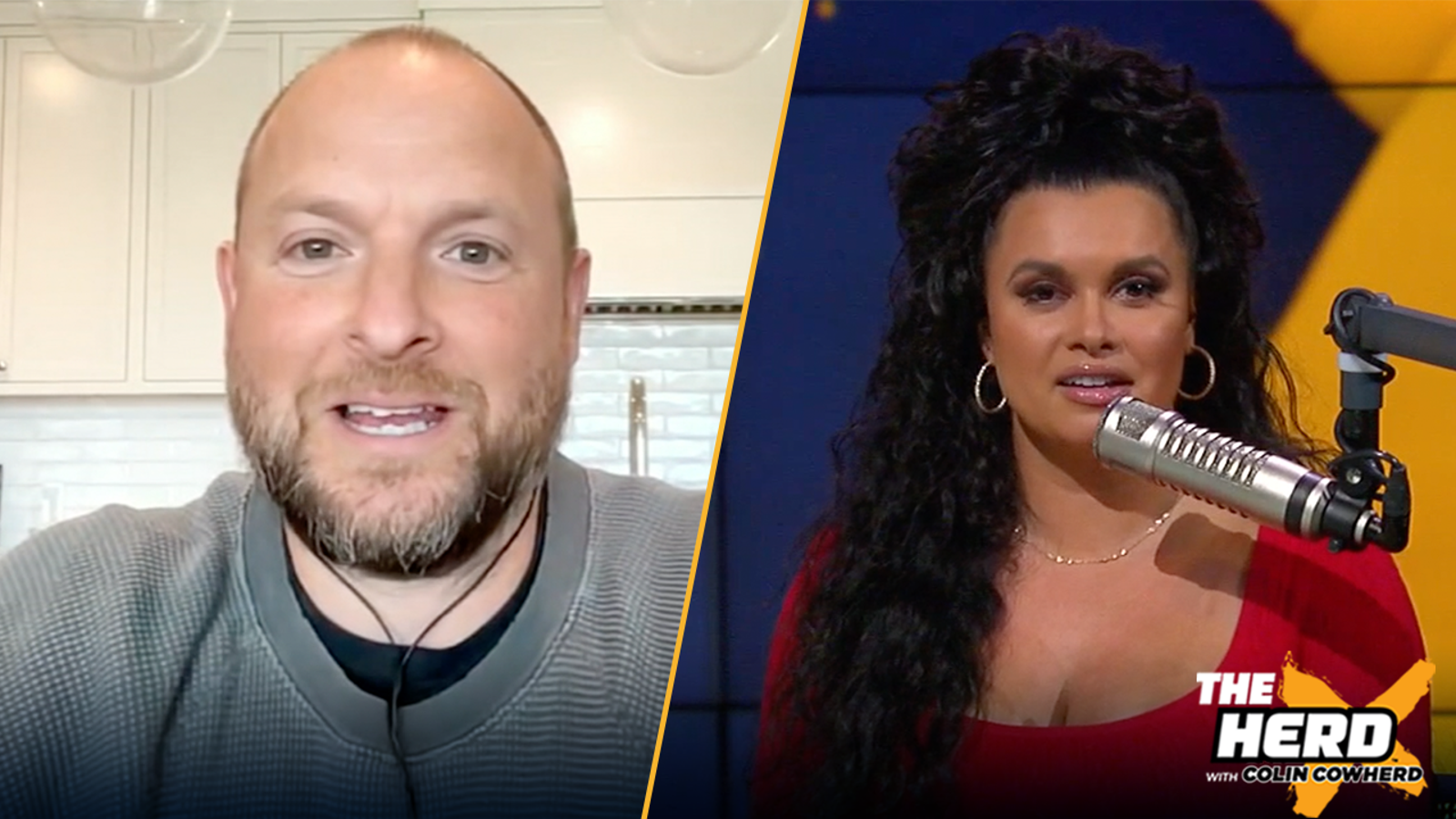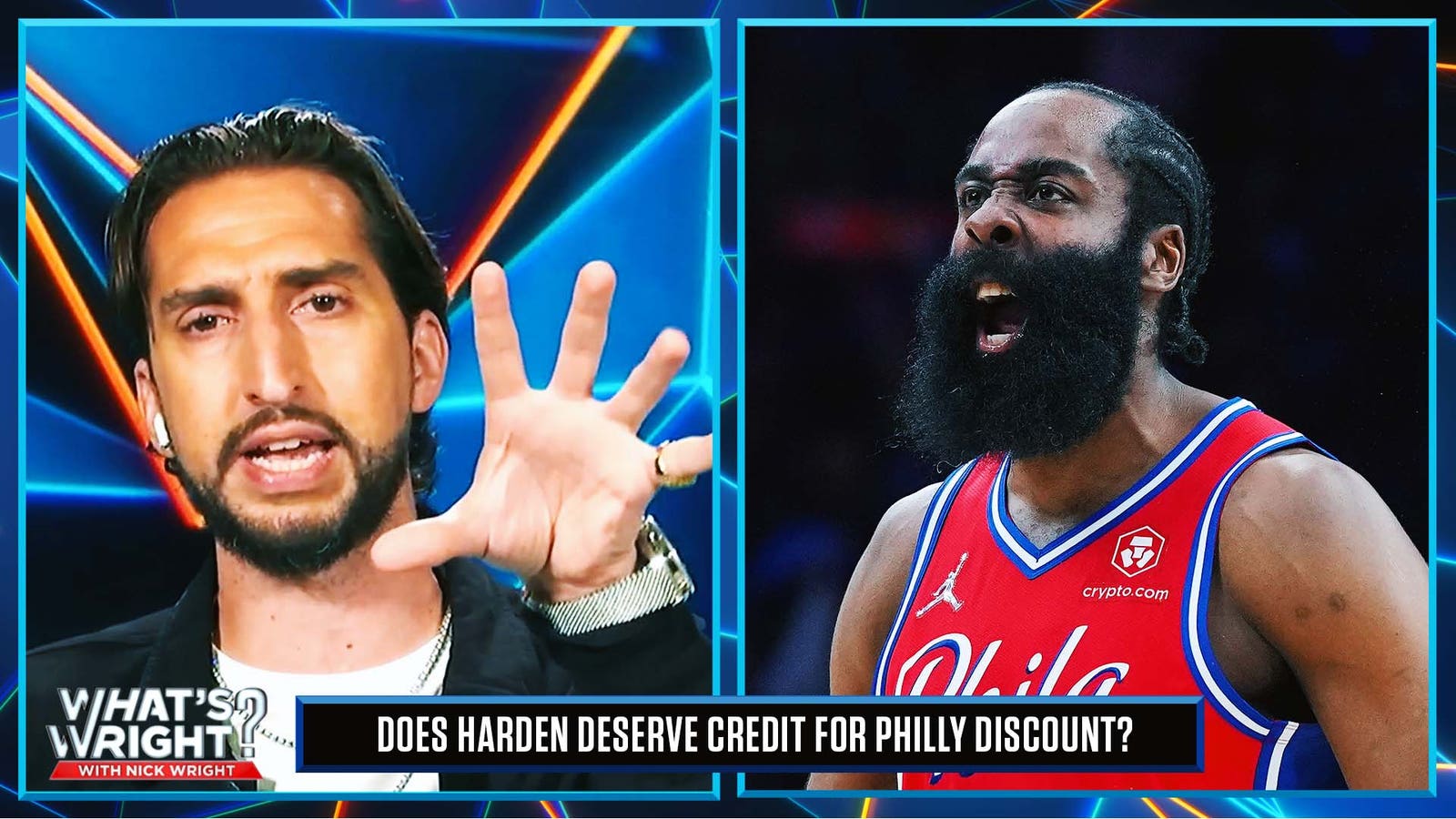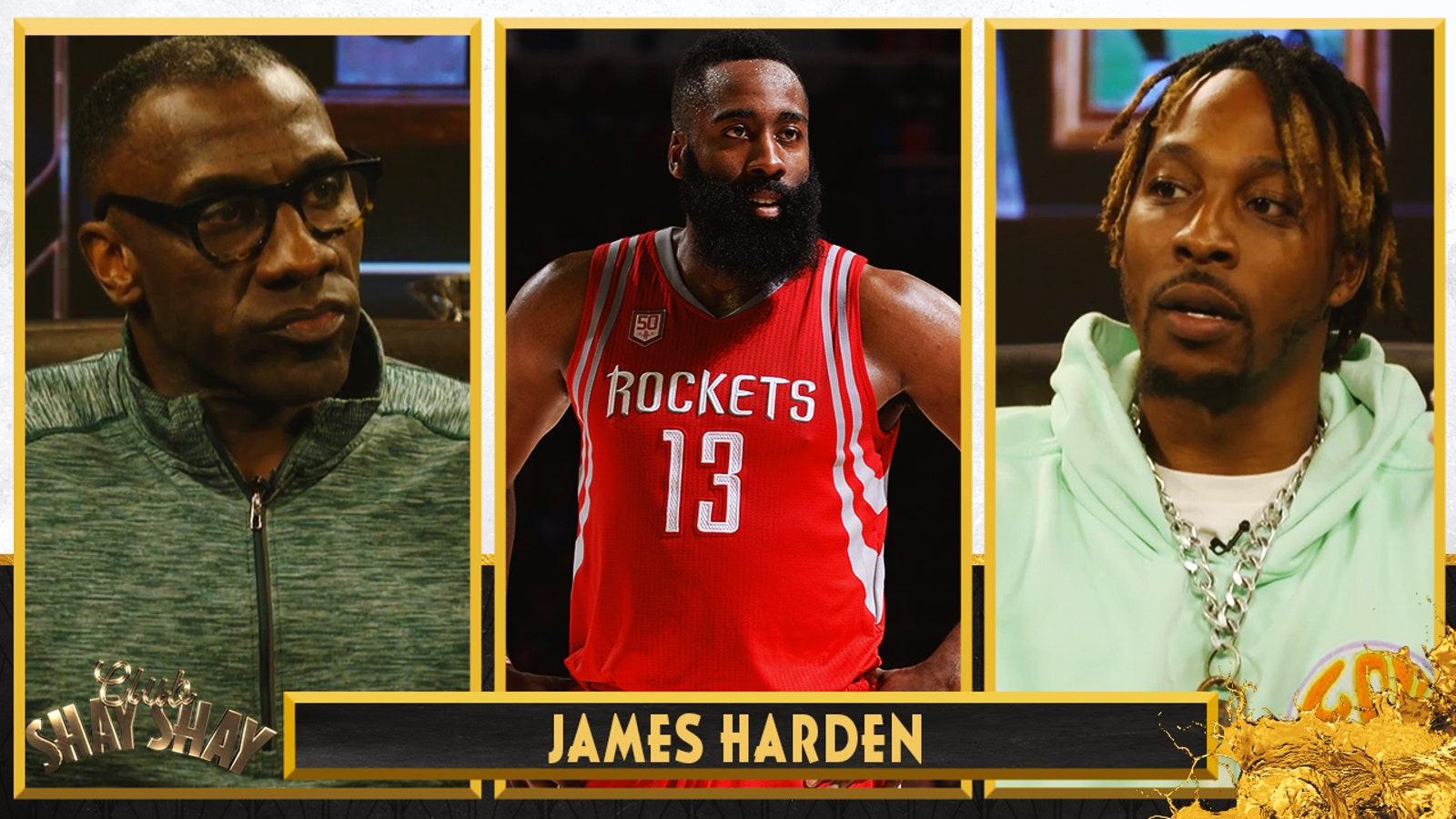Almost a week had passed since James Harden‘s 2021-22 season had come to an end. He still wasn’t returning any calls – friends, family, even his manager and longtime friend Troy Payne.
Payne has known Harden for years, so he understood that Harden reacts to year-ending losses by holing up in his Houston home and withdrawing from the world. But this … well, this was different.
“He was broken,” one friend of Harden’s said. “It was bad. He was really hurting.”
This loss marked the fourth straight season that Harden’s team had failed to advance past the second round of the playoffs. This time it was with the Philadelphia 76ers, who, just three months after trading for Harden – a deal for which Harden had lobbied, after pushing to be traded to the Brooklyn Nets from the Houston Rockets one year earlier – had fallen in six games to the Miami Heat, dropping Harden’s record in his last nine elimination games to 1-8. In the second half of that season-ending loss, Harden took just two shots.
Another day went by. Then another. Payne reached out to some mutual friends to see if they’d heard from Harden. None had. Payne tried Harden’s personal chef.
“Yeah, he’s here,” the chef said. “He’s just saying he needs more time to himself.”
Finally, around Day 10, Payne’s phone buzzed. Harden’s name flashed across the screen. He told Payne that he was hurting, physically but also emotionally, that the previous two years – multiple trades, multiple injuries, multiple playoff failures – had left him drained and deflated, that he was eager to put it all behind him.
“The whole two years was a low point. I’ve never really had to deal with something like that,” Harden told me recently. “My body, mentally, physically … It was a lot going on. I mean, basketball is everything to me.”
He never said it out loud, but throughout last offseason, friends could see that Harden recognized the window for him to secure his legacy was closing. He turned 33 in August. He was entering his 14th NBA season. He was no longer the star around which everything on his team orbited. He told people he was cool with that.
But also, he told himself over the offseason, “It was time to get back to being James Harden.”
What exactly that looks like in the year 2023, with him playing alongside another superstar in Joel Embiid, is one of the great questions of this NBA season. Can Harden adapt to his new reality? As he works his way back from yet another injury, his legacy – and the Sixers’ championship hopes – depend on it.
* * * * *
Before we continue, Harden wanted to make something very clear: Any quote you read here was simply a response to a question and not him trying to make any sort of excuses, though he knows that’s how much of what he said is going to be interpreted.
“It’s one reason I don’t really like doing interviews,” he said. “Because people will take the smallest thing that I say and basically screw it up and then it becomes a problem.”
Most of that is a result of the paradoxical space Harden occupies in our sports culture. He’s universally recognized as a singular, all-time great (10-time All-Star, six-time All-NBA first team, three-time scoring champ, one-time MVP). However, because his résumé lacks certain accomplishments (no titles, no Finals appearances since leaving Oklahoma City in 2012) and because he has a history of underperforming in big games, his legacy is hard to reconcile.
Harden’s aware of all this – “A lot of things lead to debates, and I don’t really debate,” he told me – which is likely the reason he hadn’t done an in-depth interview like this since speaking to GQ in early 2020, and why he wasn’t exactly sure he wanted to be here, sitting in a conference room of a swanky Toronto hotel on an early season off-day in October, answering probing questions.
At the time, the Sixers were struggling. Harden, however, was taking the long view. It’s not that he didn’t care; it’s that he was finally healthy, and finally feeling like himself on the court, and finally playing for a team which he felt valued the work required to compete for a championship. I asked if he could pinpoint a specific time when, after the tumult of the last few years, things felt most dire.
“I don’t want to even think about it,” he said. “I don’t need people feeling sorry for me, and I don’t want to even bring it up anymore because I’m past it. And I do a really good job of not listening to what people say because at the end of the day, it’s their opinion.
“But it was definitely that you hear people talking and it was just one of those motivational things where I don’t need motivation, but it definitely motivated me to go out there and put in the work.”
Harden does this often. He’ll say how little attention he pays to public opinion and then follow that up by citing public opinion and why it’s wrong. I told him that I’d noticed this, and I assumed it was because someone who has worked as hard and accomplished as much as he has couldn’t help but be bothered when hearing people label his career a failure.
“Don’t you care about how you’ll be remembered?” I asked.
“Of course,” he said, his voice growing stern, “and I’m gonna be remembered in basketball!”
He leaned forward. “So, of course, I care, but people are going to talk no matter what. But I care about, like, winning and things that are important and matter. I don’t care about things that don’t matter, that are gonna be a story for 24 or 48 hours and then go away.
“I’m one of the people that changed the game of basketball,” he continued. “Honestly, the only thing that I’m missing is a championship.”
* * * * *
Not long ago, things were different for Harden. Think back to his 2017-18 season. He was named NBA MVP. He led the league in scoring. His array of mesmerizing step-backs and relentless foul-drawing redefined the physics and nature of the sport. He piloted the Rockets to a season-best 65 wins. He took the juggernaut that was the Kevin Durant–Steph Curry Golden State Warriors to seven games in the Western Conference finals – even with star teammate Chris Paul missing Games 6 and 7 with a hamstring injury.
Harden led the league in scoring again the next two seasons, but his Rockets failed to return to the conference finals. Harden pushed the Rockets to flip Paul for Russell Westbrook. That version of the Rockets won one playoff series before once again burning out in the second round. Then the contract of head coach Mike D’Antoni wasn’t renewed. Soon after, Daryl Morey, the team’s president of basketball operations and Harden’s greatest proponent in the NBA, moved on.
Recognizing that the championship window in Houston had closed, Harden pushed for a trade. He set his sights on the Nets (despite some statements to the contrary that Harden has made, at the time, Brooklyn was indeed his preferred destination, according to sources with knowledge of the trade negotiations), believing they offered him his best chance at a title. He arrived in Brooklyn in the middle of January 2021 and played MVP-level basketball. The Nets put up record offensive numbers and won 27 of their next 36 games.
Then came the hamstring strain. The injury sidelined Harden for 21 of the Nets’ final 24 games, more than he’d missed over the previous six seasons combined. He returned for the playoffs but re-aggravated the injury in Game 1 of the second round against the Milwaukee Bucks.
“Normally after games, even losses, we talk in the car after,” Payne said. “That night, no one said anything. The only sound in the car was [Harden] yelling, ‘F—!'”
Harden rejoined the Nets midway through that round. He played out the series against the eventual champs basically on one leg, somehow even going 53 minutes in a Game 7 overtime loss.
“He felt like he let his teammates down by being hurt,” Payne said. “In the past, he’d been annoyed at other people for taking games off, and his thing was always, ‘I don’t take games off, I don’t miss games.’ This was something he’d never dealt with before.”
The injury meant Harden had to spend his 2021 offseason – already shortened due to the pandemic schedule – rehabbing instead of training. Then things in Brooklyn went haywire.
First, there was the whole Kyrie Irving vaccination mess. Also, Harden and Durant, according to multiple Nets sources, butted heads during the season – Durant didn’t think Harden was in peak physical shape, and told him as much; Harden, meanwhile, struggled to adjust to an ecosystem where everything was no longer catered to him. According to a friend, Harden also became frustrated with the Nets training staff and its focus on maintenance, rest and recovery; after all, in Houston he’d run stadium stairs and lift – even after games sometimes – and he never got hurt.
“Once it got to a certain point, James was just over all of it,” a Nets staffer said.
I asked Harden how he’d describe his time in Brooklyn. He hesitated. His first answer was that it was tough because “I wasn’t able to get healthy.” Then he paused.
“I don’t mean to, like, just down talk to anybody or whatever. It was just, there was no structure and even superstars, they need structure. That’s what allows us to be the best players and leaders for our respective organizations,” he said.
This was five days before the Nets fired head coach Steve Nash. It was also four months after Durant had asked to be traded.
“I just feel like,” Harden continued, “internally, things weren’t what I expected when I was trying to get traded there. I think everybody knows that. And I knew people were going to talk and say, ‘You quit’ and all that stuff, but then the following summer, the other superstar there [Durant] wanted to leave. So it’s like: Am I still the quitter?”
Harden began angling for a deal to Philadelphia, where he could reunite with Morey and team up with another MVP candidate in Embiid. It was completed in February, right before the NBA’s trade deadline.
“He was really excited to get traded,” Payne said. “He felt like he was getting a new start. Going to Philly brought back that joy.”
* * * * *
The balky hamstring sidelined him for his first four games with the team. Then he returned and looked electric. He and Embiid developed a quick on-court chemistry. In his first four games in uniform – all blowout wins – he averaged 27 points and 12 assists.
But as the season inched along, the hamstring once again became a problem. “Every game,” Harden said, “guys who I could normally get by or certain moves that I’d always hit, it just wasn’t happening.” His efficiency at the rim plummeted. His shots were blocked more than ever. He wasn’t drawing the same amount of fouls. The unstoppable, downhill force that pummeled opponents in Houston was no more.
His limitations were most noticeable in the playoffs, particularly in the second round against the Heat. The once-in-a-generation, off-the-dribble burst would only appear in spurts. More than that, he seemed unsure of how to assert himself. When asked to explain his passiveness in the Game 6 loss, he told reporters, “We ran our offense, and the ball didn’t get back to me.”
The performance – and quote – fueled the narrative of Harden being unreliable in big games.
“I’m getting traded to a situation where you got a guy in Joel Embiid, who in my opinion should have been the MVP and everything was geared toward Joel, everything was Joel, Joel, Joel,” Harden told me. “Which I get, that’s how they were playing the entire year, and so I was trying to fit in. It was never, like, ‘Here, you’re James Harden, this is how we want you to run the show.’ That’s the kind of role I was playing.”
I asked people connected to Harden to explain his Game 6 no-show.
Scott Pera, who coached Harden at California’s Artesia High School and Arizona State, told a story about having to coax Harden into shooting more at both levels because Harden was more concerned with making sure his new teammates “understood what type of teammate he was.” Multiple former high-level Rockets employees said they didn’t know what happened against the Heat but defended his overall playoff history.
“A lot of those times with us he just ran out of gas,” one told me. “It wasn’t him choking or anything.”
So what’s Harden’s explanation?
“There is no answer,” he said. “I don’t make excuses. I came into a situation where, you know, [I was] trying to figure things out, wasn’t all the way healthy, it happened. I don’t got an excuse. And anything I say, somebody has something negative to say about or a rebuttal.”
I relayed what Pera had shared about him being worried about taking too many shots at his teammates’ expense.
“Yeah, but I’m past that,” Harden replied. “Like, I led the league in scoring. But again, it was a different situation for me.
“You got to fit in instead of running the show and, quite frankly, I hadn’t been put in that ‘fit-in’ situation since I was in Oklahoma City, like, 10 years ago. And also, I wasn’t healthy. So all that together was a lot on me, which I don’t expect people to feel sorry for me at all, and I rather just not talk about it and keep to myself and just keep pushing, but you asked.”
Later, I asked about his struggles in elimination games.
“I’ve had a few bad games in close-out games. Not all of them have been bad,” he said. “Quite frankly, a lot of the times our team wasn’t good enough to compete for championships, if you want to be honest.
“There’s only so much I can do.”
* * * * *
After the playoff loss and his call to Payne, Harden prioritized his health. That meant letting his hamstring heal, then intense strength and conditioning work, then finally jumping into pick-up runs.
“Work’s never been the problem,” Harden said. “Like, you don’t get top-two in MVP voting for numerous years without working hard. It’s just having my body in a place where I could put that work in.”
Every person I spoke to for this story described Harden as a relentless worker – but last summer, even his friends noticed a difference. He asked Payne to help build a gym in his backyard, and so Payne put down about 40 square feet of green turf, covered it with a tent and filled the space with ice tubs, sleds, tires and weights.
In previous summers, Harden would sometimes answer FaceTime calls from a club or a friend’s recording studio, maybe with an alcoholic beverage in hand; now he was always in a gym with his beard soaked in sweat and a recovery drink nearby.
He didn’t completely give up fun. He partied with teammates in the Hamptons at the annual Fourth of July bash thrown by Michael Rubin – a former Sixers limited partner and one of Harden’s closest friends – and celebrated his 33th birthday on a yacht with, among others, former teammate Durant (“Me and him are cool,” Harden said. “We went on a couple summer trips together”), Future and Travis Scott. Harden punctuated that night by tossing his birthday cake into the ocean.
“In the moment, that felt like the best place for it to go,” Harden told me. “I don’t know why the cake was handed to me. I definitely was not in the right state of mind.”
Nights like that were rare, though. Last summer, after coming through the gym at the University of Houston, where Kelvin Sampson, a former Rockets assistant, now serves as the head coach, Sampson told Harden, “This is the best shape I’ve ever seen you in.”
“The last two years,” Harden said, “I wasn’t in a space where I could do that.”
As the summer went on, Harden worked on establishing himself as a team leader and building chemistry. He’d tried a bit the season before – Sixers forward Georges Niang shared a story about Harden inviting him to join his group for dinner a few hours after Niang had botched a late-game possession in a loss to the Denver Nuggets – but now felt like he had more agency. He organized an unofficial week-long team mini-camp in L.A. When a Sixers strength coach organized a Sunday morning group workout for team staff, Harden was the lone player to join.
But he devoted the most effort to polishing the Embiid partnership on which the Sixers’ season – and Harden’s ability to flip the narrative coloring his career – hinges.
* * * * *
It started with hangouts away from basketball.
Harden and Embiid partied together with Rubin on the Fourth of July and during Major League Baseball’s All-Star weekend. When Harden hosted an August event celebrating the release of his new wine brand, Embiid, an introvert whose favorite night activity is being home in his sweats, showed up in support.
“They talk more than any superstar combo that I’ve ever had together,” Morey said. Multiple people close to both stars also said the two get along great.
But off-court relationships don’t always beget on-court success. Just look at Harden’s history, especially with friends such as Westbrook and Durant. I pointed out to Harden that he seemed to have a record of clashing with superstar teammates.
“Who said it didn’t work out?” he asked me. “We just didn’t have enough talent. There were better teams than us. But if we had won, everything would have been cool.”
The Sixers brain trust recognized that melding the games and styles of Harden and Embiid would be a process. They’re quick to point out that last season the two, statistically, formed the league’s most potent pick-and-roll combination, but also how few games the two have played together (41, including the playoffs).
It’s why Rivers met with his two stars multiple times last offseason, and also had Harden over to his L.A home for dinner a handful of times. (“The way you have teams grow is by talking and being around each other,” Rivers said.) It’s why, Morey said, the Sixers decided before the season to give Harden and Embiid more minutes together. It’s why, Harden said, he and Embiid are always discussing details like spacing and favorite spots to receive the ball.
“It’s trying to figure out ways we can make each other better,” Harden told me. “Getting my shots, but also trying to make Joel’s job a lot easier so he doesn’t have to go against two to three guys every possession, because I know how that feels.”
Despite the early-season losses, there were glimpses of progress, of the stars leaving their respective comfort zones. When I asked Harden if his decline in shots attempts at the rim and uptick in midrange jumpers was because, at his age, it was now harder for him to reach the rim, he laughed at the suggestion of him losing a step.
“It’s the way our team’s built,” he said. “Our bigs aren’t lob threats getting behind the defensive big and pushing him down so there’s always a big in front of me. So it just makes more sense for me to shoot the midrange shot or a floater than trying to go and draw contact.”
But the developing chemistry was soon tested.
In early November against the Washington Wizards, Harden strained a tendon in his right foot. The injury sidelined him for 14 games. Over that stretch, it was hard not to notice how much more active and effective Embiid looked. He’d gotten off to a sluggish start – which he and the team have said was due to an offseason foot injury that sapped his conditioning – but now, with everything revolving around him, he was once again playing like an MVP and the Sixers defense was once again suffocating opponents.
Embiid showered Harden with compliments throughout that stretch, as the team went 8-6. “Since he’s been here, he’s bought into everything we’ve asked of him … He’s such a good playmaker, you’ve got to put the ball in his hands … He’s so freakin’ good…” But he also made his preferences clear.
He told reporters numerous times that the Sixers were done switching on screens, Harden’s longtime preferred defensive scheme. “I think at the beginning of the year, the mistake we made was we tried to go one-through-five a lot,” he told reporters. “I can do it, but, like, that’s not what I’m good at.”
When I asked Embiid about adjusting to the other end of the court, he said, “It’s kind of like, a lot on my shoulders, because we play a lot out of ‘delay.’ So, it’s really on me to make sure that the offense keeps moving.”
“Delay” has been a long-time Embiid staple, an alignment where he catches the ball at the top of the key – where Harden likes to orchestrate – and runs the offense with a spread-out floor. Earlier in the season, a rival scout had told me that the Sixers weren’t running that set as much as in years past. I asked Embiid if that was true.
“We weren’t, but now we are,” he told me. “We have to keep doing it.”
In late November, when Harden was still sidelined, I asked Morey about the partnership, told him how these quotes could leave some skeptical that his two stars could thrive together.
“I think that’s just a narrow way of looking at it,” Morey said. “When stars come into a game and they know the other one’s not playing, it makes their job conceptually easier, because they know that unless they have a great game, we’re probably not winning. Whereas if they’re both there, I think they both do have to sacrifice their game a little bit – and I don’t even like that word in this case. It’s more modify. But that’s true of every NBA champion. I actually think we’re structured and constructed in a way that’s like most title teams.”
So does Morey, who bases almost every team-building decision on his team’s championship odds, believe this Harden and Embiid partnership has the potential to capture that elusive ring?
“We’re above the threshold,” he said.
* * * * *
Harden didn’t want to take any chances after the recent foot injury. He’d worked too hard.
He started by enlisting the help of a foot and rehab specialist named Esia Riveral. He also convinced Paul Fabritz, a popular trainer in NBA circles, to move from the West Coast to Philadelphia for the month. The group treated Harden’s foot, but also used the time off to further strengthen his hamstring. As Harden watched Embiid dominate, and players like Shake Milton, Tobias Harris and DeAnthony Melton flourish, and also how P.J. Tucker struggled, he thought about how he could best assert himself upon his return.
He struggled in his first game back – a 4-for-19 clunker in a loss to the tanking Rockets – but after that, he found his groove. The unguardable step-backs and dazzling dump-offs were still there. He was also spraying the ball out to shooters from the post. And throwing hit-ahead passes from the backcourt. And even pulling up for midrange jumpers.
“James has done a great job of getting everybody else easy shots,” Embiid said after Harden racked up 21 points and 15 assists in a 123-103 drubbing of the Sacramento Kings on Tuesday, the team’s third straight win.
In one of those victories, a 131-113 thrashing of the Charlotte Hornets, Harden dished out 16 assists, 10 of which were to Embiid. Harden hit him on rolls. He hit him on pops. He hit him on cuts. Embiid finished the game with the most untaxing 53-point game you’ll ever see. He and Harden have now shared the court for 278 minutes this season; in that time, the Sixers have outscored opponents by 60 points.
After the win over the Kings, Harden answered reporters’ questions about what has been clicking. He talked about how he’s trying to “pick up the pace and get the ball up as fast as we can” and how he wants to “create opportunities” for Embiid but also how his job is to help keep team’s defensive specialists, such as Tucker and Matisse Thybulle, engaged.
“As much as they help me defensively, my job is to help them offensively,” he said, “and put them in positions where they got easy ones around the rim or they got catch-and-shoot opportunities.”
Later that night, he posted a picture on Instagram of himself. In the photo he’s standing in the doorway of the Sixers home locker room, his limbs loose, his face curled into a beaming smile.
“The moment I stop having fun with it,” he wrote, “I’ll be done with it.”
Read more:
Yaron Weitzman is an NBA writer for FOX Sports. He is the author of “Tanking to the Top: The Philadelphia 76ers and the Most Audacious Process in the History of Professional Sports.” Follow him on Twitter @YaronWeitzman.
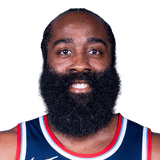
Get more from James Harden Follow your favorites to get information about games, news and more


